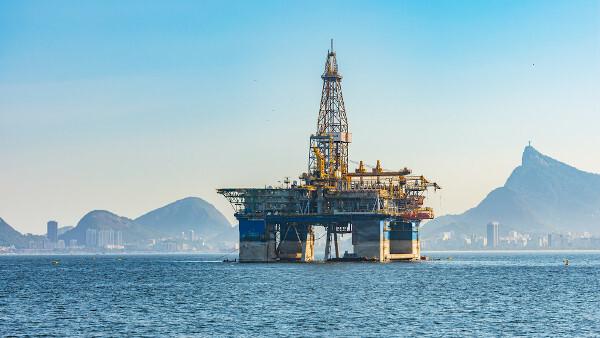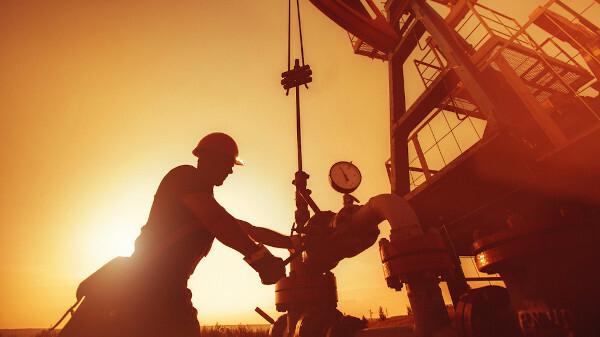THE Petrobras is a Brazilian state-owned company that operates mainly in the exploration and production of oil and its derivatives and natural gas. The company was founded in the year 1953, in the second government of Getúlio Vargas, and began its activities in 1954.
One of the milestones in the history of oil in Brazil was the discovery of the pre-salt layer between the coasts of Santa Catarina and Espírito Santo, which quickly expanded Petrobras' production and placed the company in a prominent position in the scenario International. In addition to contributions to the petrochemical technology sector, Petrobras is a great attractor of foreign investment and a generator of jobs.
Read too: Differences between charcoal and coal
After all, what is Petrobras?
Petrobras is a Brazilian oil company. It is dedicated to the exploration, production, refining, transport and marketing of Petroleum and its derivatives, in addition to the natural gas. The company is also present in the energy sector, operating in the generation of thermoelectric energy and through renewable sources, as well as in the gas-chemical and biofuels segment.
|1|.In addition, Petrobras operates in the research and technological development sector focused, above all, on oil exploration. In this sense, the company stands out internationally in oil exploration in deep and ultra-deep waters.
Petrobras' headquarters are located in the city of Rio de Janeiro.
![Petrobras is one of the main Brazilian state-owned companies. [1]](/f/faf1aa2c29c0380bd878e4a3e8d9be62.jpg)
Petrobras History
Petrobras was founded on October 3, 1953, in the second government of the president Getulio Vargas. The creation of the company Petróleo Brasileiro SA is linked to the text of Law No. 2004, which provides for the National Petroleum Policy, establishing the Brazilian monopoly on activities related to research, exploration, refining and transportation of raw materials.
In addition to acting through the National Petroleum Council, it was established that the Union's monopoly would also be exercised through Petrobras. Until the creation of the company in the 1950s, there were a lot of debates in the political and civil spheres about oil exploration in Brazil and of the agents to which this activity would be assigned.
The government of President Gaspar Dutra, which preceded Vargas' return to power, favored the inclusion of private foreign companies in the country's oil exploration project. In 1948, the Petroleum Statute was launched, which sought to regulate this activity, but the document ended up being filed shortly thereafter.
O nationalist group, who, on the contrary, was a defender of the state oil monopoly, created the Oil Campaign, which became known by the phrase "Oil is ours". The campaign received broad support from various sectors, which led to the development of the 1953 law, which established, among others, the creation of Petrobras
The company officially started its activities on May 10, 1954.
Oil exploration
Oil exploration is the main activity performed by Petrobras. this phase it concerns discoveries and the analysis of geological characteristics. the area where the extraction of raw material will be carried out. Therefore, it involves the collection of a series of data, correlated research and evaluations, also comprising drilling and the chemical evaluation of the material.
Petrobras' exploratory activity happens mainly in eight sedimentary basins, which are located on the Brazilian continental shelf, and two onshore basins. Among these is the Recôncavo Basin, at Bahia, an area where the first commercial field in Brazil was discovered, even before the emergence of Petrobras, in 1941.
A few years later, in 1968, the company began its exploration on the continental shelf, which took place in the area of Sergipe and Alagoas Basin. The first field in this area was discovered the following year.

Another important event for oil exploration in Brazil took place in 1974, with the discovery of the Campos Basin, between the coasts of Rio de Janeiro and Holy Spirit. According to Petrobras data, this area is currently responsible for 80% of oil production in Brazil.
Technological improvement, especially with operations in deep waters in the Campos Basin, and continuous investments in research in the exploratory sector resulted in the discovery of large oil reserves in the pre-salt layer in 2006. This fact started a new exploration and production phase for oil in Brazil, and raised Petrobras to a pioneering position in terms of technologies for great depths.
See too: What is bioenergy?
Pre-salt
O pre-salt it is a oil reservoir found on the Brazilian continental shelf, extending for 800 km between the coast of Santa Catarina and Espírito Santo, thus encompassing three sedimentary basins: Santos Basin, Campos Basin and Espírito Santo Basin.
The pre-salt layer is at a depth of approximately seven thousand meters, and gets its name from being located beneath a thick layer of salt of two thousand meters.
High quality pre-salt oil reserves have been formed over more than 150 million years as fruit of the separation process of the continents African and American and the opening of the oceans, which resulted in the deposition of organic matter and sedimentary rocks.
The discovery of this layer was announced by Petrobras in 2006. The first oil extraction in the region was carried out in 2008, and activities began gradually until 2010, when operations were carried out. That year, production was 41 thousand barrels of oil per day. This number climbed to 500,000 in 2014 and reached the 1 million mark in 2016. Petrobras data for 2018 indicate that pre-salt production is currently 1.5 million barrels per day.
Pre-salt production in 2020 was equivalent to 66% of Petrobras' oil and natural gas production. With the discovery of this reservoir, the country is said to have reached its self-sufficiency in oil.
Importance of Petrobras for Brazil
Petrobras is one of the largest Brazilian state-owned companies, and, as a result, plays an important role in the country's economy and in several other sectors related to the activities carried out by the company. To get an idea of the weight that Petrobras' performance has in the domestic sector, data from 2014 show that The company's activities were mainly responsible for the oil and gas sector representing a share of 13% of country's GDP|2|.
The acceleration of production and growth that the state-owned company has undergone in the last two decades, especially from the exploration of pre-salt reserves, provided the greater investment attraction for the production chain of oil and its derivatives.

The company's contribution also extends to the research and technological development in the exploration and production of the petrochemical sector highlighting the pioneering technologies used for oil exploration at great depths.
Petrobras is responsible for generation of a large number of jobs directly in its facilities and activities, and indirectly in productive sectors or companies that depend, in some way, on the production of oil and fuel. in addition tomoreover, part of the values generated by production and exploration return in the form of royalties for the Union, states and municipalities.
It can be said that oil production itself places Brazil in a privileged and, at the same time, strategic position in the world scenario, given the great geopolitical value of this resource.
Also access: Non-renewable energy sources - those that use exhaustible resources
Petrobras and the State
Petrobras is a state mixed economy company. This means that it is a publicly-held public company, with the participation of other private companies and the State, which holds most of the shares.
As we have seen, the law that created Petrobras established the State's monopoly on the activities carried out in the oil production chain. In the year 1997, through the enactment of the Petroleum Law (Law No. 9,478), Petrobras' exclusivity was revoked on the research, exploration, production, refining and transport of Brazilian oil, also allowing the performance of foreign and private companies.
By the same device, the National Agency for Petroleum, Natural Gas and Biofuels (ANP) was created, which regulates services related to exploration and production. This agency is responsible for bidding for oil and gas exploration by private and foreign companies in Brazil.
Notwithstanding the discussions that arise around the sale of Petrobras to the private sector, the company remains until now with the Brazilian State as the majority shareholder.
Privatization of Petrobras
The process of privatization of a company consists in the sale of a state company, in the public sector, to the private sector. At discussions regarding the privatization of Petrobras are not recent, and, from time to time, raised by the economic and political circumstances of the country and by issues related to the company, like debts and political scandals, they resurface and attract opinions against and favorable to the privatization.
The main arguments on both sides take into account the company's profitability, the management capacity and effectiveness of the private sector versus the State, and the priorities and attributions of the State towards the market and society. As noted above, the company was not privatized and remains state-owned.
In order for private companies to perform oil and natural gas exploration and production services in Brazil, concession and sharing and onerous concession regimes were established.
Grades
|1| PETROBRAS. Who we are: profile. Available at: <https://petrobras.com.br/pt/quem-somos/perfil/>. Accessed on Feb 27 2021.
|2| PETROBRAS AGENCY. Share of the oil and gas sector reaches 13% of the Brazilian GDP. Petrobras Agency, June 17 2014. Available at: <https://www.agenciapetrobras.com.br/Materia/ExibirMateria? p_materia=976480&p_editoria=11>. Accessed on Feb 27 2021.
Image credit
[1] Wirestock Creators / Shutterstock
By Paloma Guitarrara
Geography teacher
